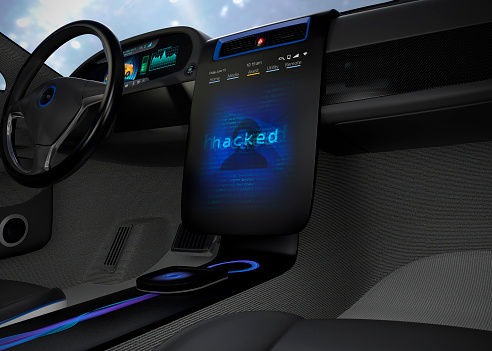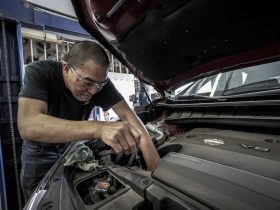Cars have changed incredibly over the years. When the first car was invented by Carl Benz back in the late 19th century he would scarcely have imagined where we would be today, just over a hundred years later. Cars have developed from slow petrol-driven vehicles into super sleek, fast machines, that are now capable of running on electricity rather than fossil fuels. The technology inside them has changed vastly, initially, they may have had just an air horn for technology, whereas today they are jam-packed full of the latest gadgets and several firms are even now developing autonomously driven vehicles. In the past, you may have needed a key to start your vehicle, but today the press of a button will open your car, and another button will start the engine. This has meant that they are much more vulnerable to hackers so it is important to understand the legal ramifications if your car is hacked and stolen.
In this article, we are going to look at who is responsible if your car is hacked, so read on to find out more.
What does car hacking mean?
Your car is fast becoming an extension of your home computer and is even connected to the internet, so just as your laptop or PC is vulnerable to hackers, so is your car. This could be in many forms; hackers could disable your car and then demand a ransom to make it work again, just as they do with the data on your computer, or they could even hack your car, turn it on, and drive off with it, all whilst you are fast asleep and completely unaware. It is also possible for hackers to steal your personal data via your vehicle as it will likely be connected to your phone, so they can get all of your personal information and potentially mimic you to the authorities using your identity to apply for loans and undertake other nefarious activities. All of this means that you need to be extraordinarily vigilant when it comes to your vehicle and the information which it contains.
Why is it dangerous?
Aside from the obvious reasons regarding why it is necessary to keep your data safe and secure, there are other reasons why hacking could be extremely dangerous. Imagine a scenario where you are merrily driving along and you try to break and you can’t? Not only could this be lethal to you, but also to other road users, and it could all be the result of a hacker who thought it might be fun to disable your brakes. The added problem here is that often you will have absolutely no idea who the hacker is, so who would you hold responsible if you had a crash as a result of a hack, or if you lost all of your personal data, or you were held to ransom? This is the big question that has the legal world abuzz.
Who is responsible?
Well, less than half the states in the US have any statutes on their books regarding car hacking, and courts have little experience in this area so it is often very difficult to know who is responsible. There have, however, been a few precedents set according to Freeway Insurance Services who monitor these issues closely as they have a huge bearing on insurance costs. A famous example is that of a decorator who forgets to lock a house, which is subsequently burgled. The courts found that the decorator was liable, so similarly would a carmaker be responsible for leaving ‘a doorway’ unopened that allows hackers to hack the vehicle? That is the assumption currently, though, it would be up to the car owner to prove that they had not been negligent by not closing down any hacking loopholes. Car manufacturers will bring out regular updates to their software, so if you do not want to be held liable, it is paramount that you update your software as soon as it is released otherwise you could be accused of leaving the door open.
As we have discovered, it really is currently a legal grey area as to who is responsible if your car is hacked. By hacking, we mean that your car is electronically controlled by a third party against your wishes which could result in an accident, theft of the vehicle, or even theft of your personal data. It is vital that you ensure that any software updates that are issued by the manufacturer are immediately installed as otherwise you could be accused of leaving your car vulnerable, and if you do install them, then it is likely the courts would find against the manufacturer in the event that your vehicle is hacked.








